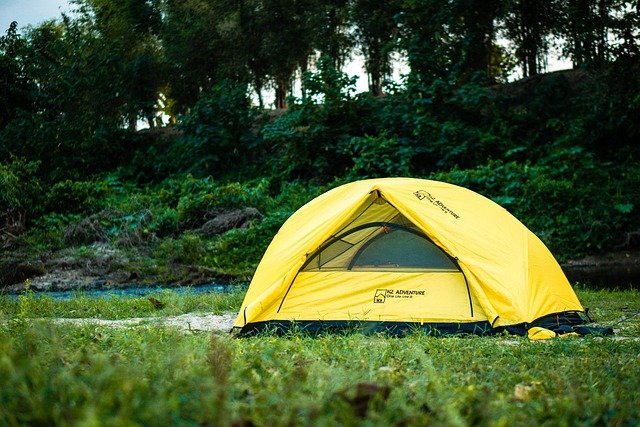Unearthing the Art of Foraging Vacations: A Culinary Adventure in the Wild
Embark on a unique journey that blends the thrill of exploration with the satisfaction of sourcing your own meals. Foraging vacations are gaining traction among adventurous travelers seeking to reconnect with nature and expand their culinary horizons. This emerging trend offers a fresh perspective on sustainable travel, allowing participants to discover local ecosystems while learning valuable survival skills. As we delve into the world of foraging getaways, prepare to uncover a new dimension of culinary tourism that promises to tantalize your taste buds and ignite your sense of adventure.

Pioneering chefs like René Redzepi of Noma in Copenhagen played a significant role in popularizing foraged ingredients in haute cuisine. This culinary trend sparked curiosity among food enthusiasts and travelers alike, leading to the development of guided foraging tours and specialized retreats. Today, foraging vacations have evolved into a niche yet rapidly growing segment of the travel industry, attracting those seeking to combine outdoor adventure with gastronomic discovery.
The Anatomy of a Foraging Vacation
A typical foraging vacation is far from your average beach retreat or city break. These unique getaways are often set in picturesque natural settings, ranging from lush forests and coastal regions to alpine meadows. Participants spend their days exploring diverse ecosystems under the guidance of expert foragers, learning to identify, harvest, and prepare wild edibles.
Activities may include mushroom hunting in the Pacific Northwest, gathering seaweed along the Irish coast, or picking wild berries in the Scandinavian wilderness. Many foraging vacations also incorporate elements of bushcraft, teaching participants how to build shelters, start fires, and navigate using natural landmarks.
The culinary aspect is a central focus, with participants often preparing meals using their foraged ingredients. Some programs feature workshops led by professional chefs, where travelers can learn to create gourmet dishes using their wild-harvested bounty. This hands-on approach not only provides a unique culinary experience but also fosters a deeper appreciation for local ecosystems and sustainable food practices.
The Global Landscape of Foraging Destinations
Foraging vacations have taken root in various corners of the globe, each offering a unique blend of local flora, fauna, and culinary traditions. In Europe, countries like Sweden, Finland, and Scotland have embraced this trend, capitalizing on their vast wilderness areas and rich foraging cultures. The Nordic countries, in particular, have become hotspots for mushroom and berry foraging expeditions.
Across the Atlantic, North America offers diverse foraging landscapes. The Pacific Northwest, with its abundant mushroom varieties and wild herbs, has become a mecca for mycology enthusiasts. Meanwhile, the Appalachian region provides opportunities to forage for ramps, morels, and other woodland delicacies.
In the Southern Hemisphere, New Zealand has emerged as a prime destination for foraging vacations. The country’s unique biodiversity and Maori foraging traditions offer travelers an unparalleled experience in wilderness cuisine. Similarly, parts of Australia are seeing a rise in bush tucker tours, where visitors can learn about indigenous food sources and traditional foraging practices.
The Impact on Local Communities and Ecosystems
As foraging vacations gain popularity, they bring both opportunities and challenges to local communities and ecosystems. On the positive side, this form of tourism can provide economic benefits to rural areas, creating jobs for local guides and fostering appreciation for traditional knowledge. It also promotes conservation by highlighting the value of intact ecosystems and encouraging sustainable practices.
However, the increased interest in foraging also raises concerns about over-harvesting and potential damage to fragile ecosystems. Responsible foraging vacations address these issues by emphasizing education, promoting ethical harvesting techniques, and often implementing strict guidelines to ensure minimal environmental impact. Many programs work closely with local conservation authorities to maintain a balance between tourism and ecological preservation.
The Future of Foraging Tourism
As the travel industry continues to evolve, foraging vacations are poised for further growth and innovation. We can expect to see more specialized offerings, such as foraging retreats focused on medicinal plants or rare culinary ingredients. Technology is also likely to play a larger role, with apps and augmented reality tools enhancing the foraging experience and aiding in plant identification.
Climate change and shifting ecosystems present both challenges and opportunities for foraging tourism. As plant distributions change, foraging destinations may need to adapt their offerings. This could lead to the discovery of new foraging grounds and the development of novel culinary traditions based on changing local flora.
Forager’s Field Notes
-
Always forage with an expert guide to ensure safety and sustainability
-
Learn the universal edibility test for unknown plants
-
Carry a reliable field guide specific to your foraging region
-
Invest in proper foraging tools like a good knife and collection basket
-
Respect local regulations and obtain necessary permits
-
Never harvest more than you need or can use
-
Be aware of lookalike species that may be toxic
-
Consider the environmental impact and avoid over-harvesting
-
Document your finds with photos for future reference
-
Share your knowledge responsibly to promote sustainable foraging practices
As we look to the future of travel, foraging vacations represent a compelling blend of adventure, education, and sustainability. By reconnecting travelers with the natural world and ancient food-gathering practices, these unique getaways offer more than just a break from routine – they provide a transformative experience that can reshape our relationship with food and nature. Whether you’re a culinary enthusiast, nature lover, or simply seeking a new way to explore the world, a foraging vacation might just be the fresh perspective you’ve been craving.





